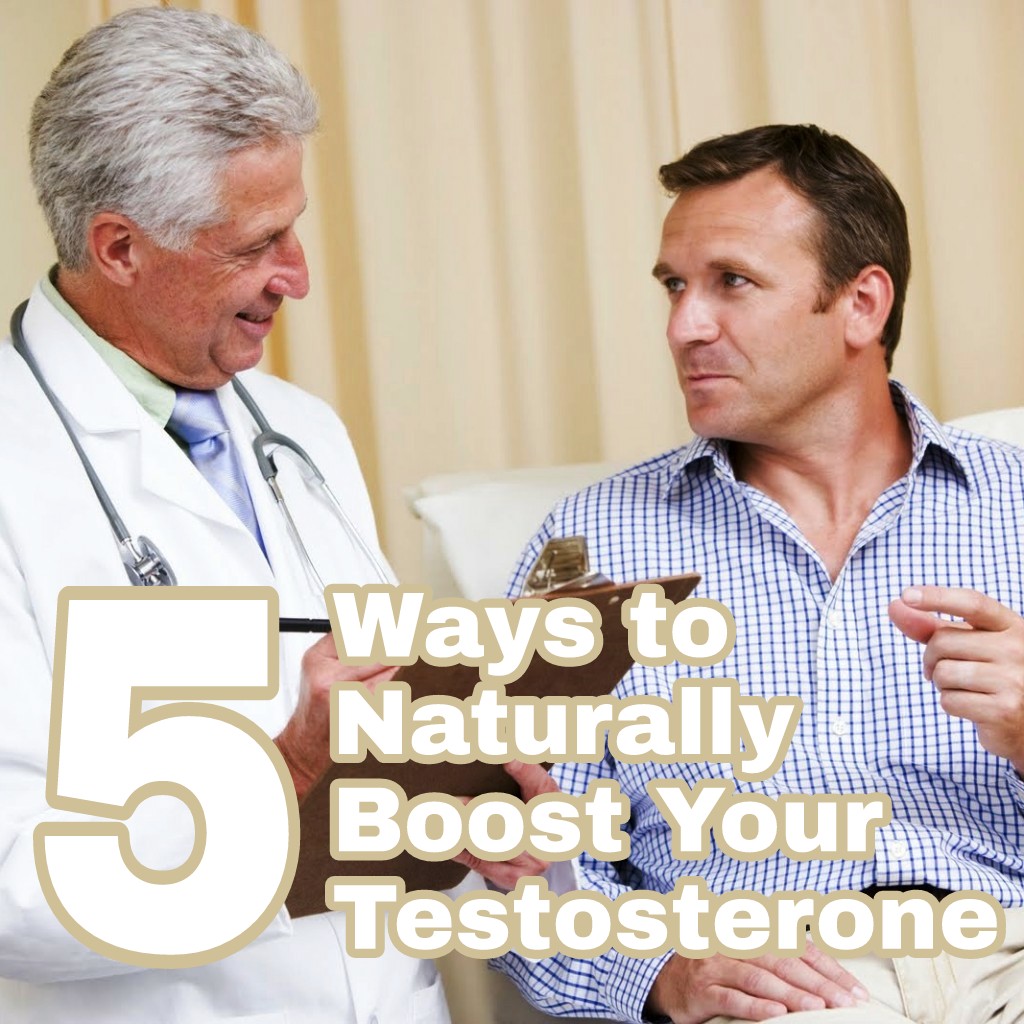5 Signs Your Testosterone is Too Low
- Published in Testosterone Replacement Therapy

Like all hormones, testosterone plays an important role in regulating a host of different processes in the body. There is no question maintaining optimal levels of testosterone is ideal to a healthy lifestyle. Testosterone is an essential hormone responsible for male development, masculine characteristics, building muscle, fueling sex drive, and receptors exists throughout the body. This hormone is primarily produced in the male testicles and womens’ adrenal glands. As we age, testosterone production begins to slow down. If you have low levels of testosterone, the consequences can greatly affect your health.
5 Ways to Naturally Boost Your Testosterone
- Published in Testosterone Replacement Therapy

When you see the term “testosterone,” we typically associate it with masculinity and men. However, women generate testosterone too. So, what exactly is testosterone? Testosterone is a steroid hormone that plays a significant role in the male sperm production and produced in women’s ovaries in much smaller amounts. Rising levels of testosterone stimulates physical and chemical changes for boys and men such as increased muscle, pubic hair growth, deeper lengthened vocal chords, and increased sexual desire.
Testosterone production significantly spikes during puberty and starts to drop after age 30. Having optimal levels of the steroid hormone is essential from puberty throughout adulthood for general health, aids in preventing certain chronic diseases, and increases energy levels. As our levels of testosterone naturally decrease over time, rest assured there are ways to naturally boost it back up.
Testosterone in women - is it physiological and clinically important?
- Published in Testosterone - Women

Testosterone Therapy vs. Estrogen Therapy in Surgically Menopausal Women - effectiveness comparison
- Published in Testosterone - Women

Beneficial effects of testosterone therapy on menopause symptoms and quality of life
- Published in Testosterone - Women

Multiple Hormonal Deficiencies in Anabolic Hormones in Frail Older Women
- Published in Hormones & Health

Reduced levels of anabolic hormones can contribute to aging and frailty. Most studies that have investigated this focused on the relationship between individual hormones and specific age-associated diseases. An interesting study in older women aged 70-79 years sought to examine the associations of individual anabolic hormonal deficiencies of free testosterone, IGF-1 and DHEA, and to assess their combined effects as well.[1]
Testosterone Replacement Therapy - why is it so controversial?
- Published in Testosterone Replacement Therapy
"It is dangerous to be right when the government is wrong." - Voltaire
For reasons that are not readily apparent, there appears to be a conservative political movement that opposes the use of testosterone in older men. This was clearly demonstrated by the report of the Institute of Medicine, which felt that testosterone is not yet ready for prime time and that there is still a need for studies to prove its efficacy [1]. Along the same lines, the guidelines of the Endocrine Society on testosterone use in older men seem to be ultra-cautious [2]. But fortunately, there are also other, more liberal guidelines and recommendations [3-5].
Probably no other medical issue has been bombarded by the influx of “expert” views from all walks of life; from endocrinologists and psychiatrists to urological surgeons and gerontologists, from the lay press to the regulatory agencies and from the pharmaceutical to the entertainment industries. The dismal result of all this free-for all cacophony of opinions is a great deal of confusion, erroneous information and significant detriment to patients and physicians alike.
Let's take an in-depth look at the reasons for the negative attitudes to male testosterone replacement therapy (I will cover post-menopausal testosterone replacement in an upcoming article), and the hard scientific data that refutes it...
Beneficial effects of testosterone therapy in women on menopause symptoms and quality of life
- Published in Testosterone - Women

Testosterone levels in women decline steeply with age during the reproductive years; by the time women reach their late 40, their blood testosterone levels are approximately half what they were in their 20s.[1, 2]




